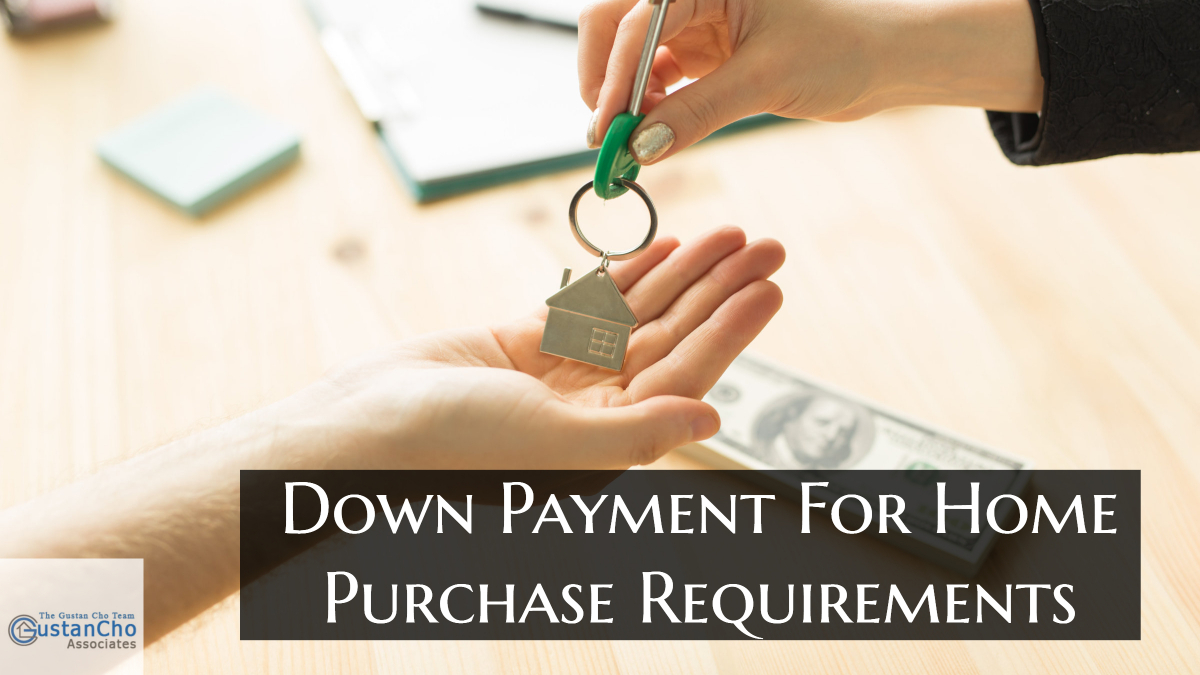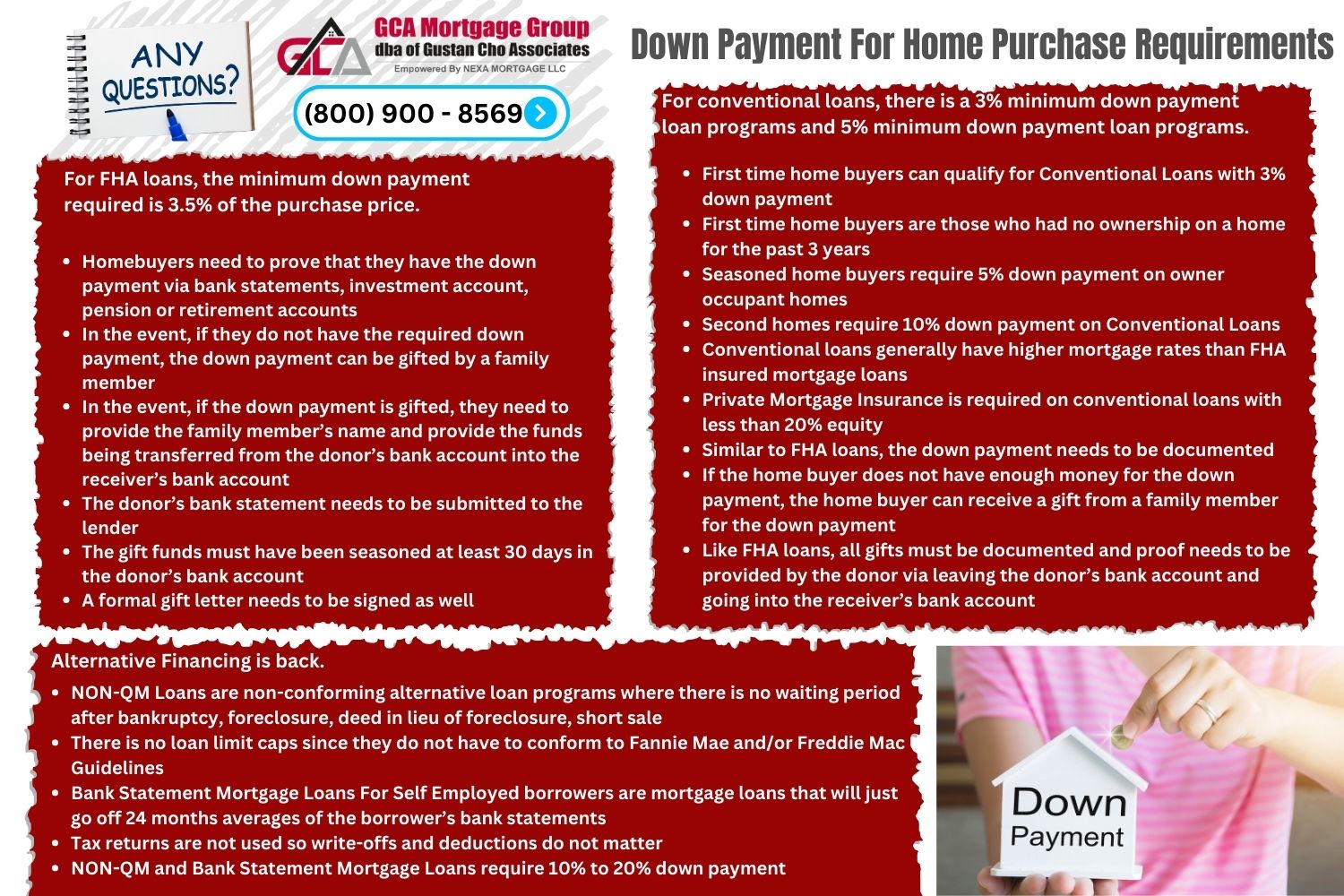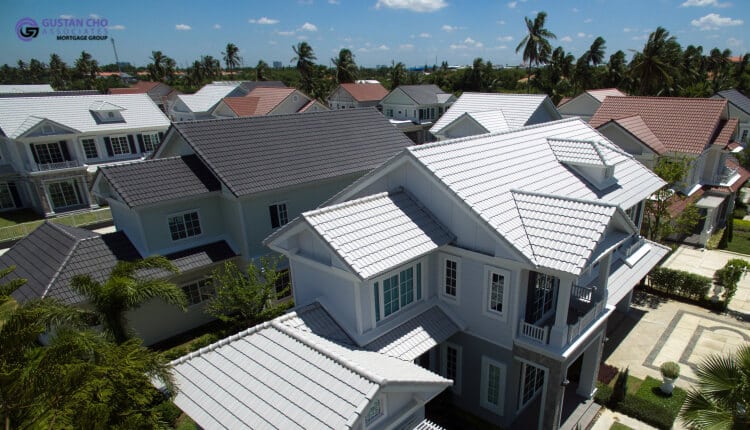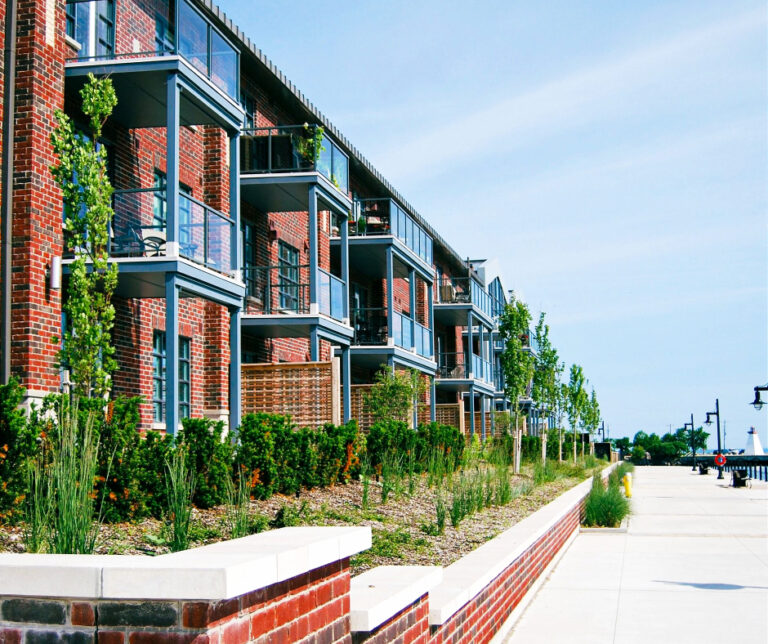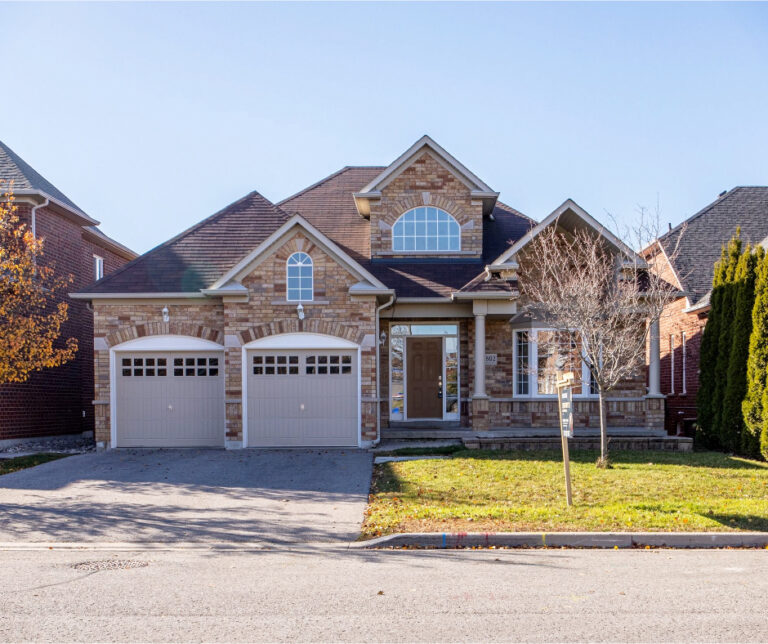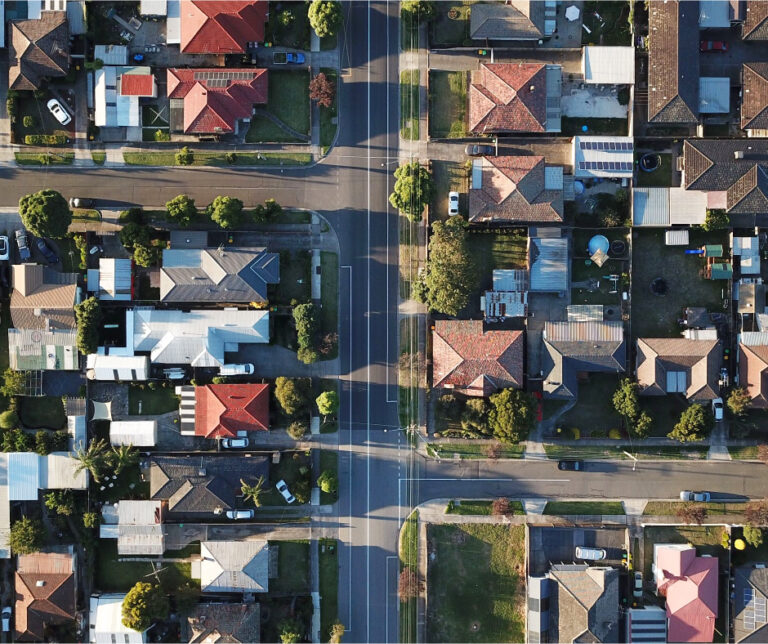Down Payment For Home Purchase Guidelines By Lenders
In this guide, we will cover down payment for home purchase requirements by mortgage lenders. Homebuyers planning to purchase a home have two types of costs they need to come up with.
- Down Payment For Home Purchase Requirements
- Closing Costs
Mortgage lenders will require a down payment for home purchases. This is because they want the borrower to have skin in the game. Statistics prove that if a homebuyer puts down their hard-earned money, the chances of foreclosure reduce. The more down payment a homebuyer puts down on a home purchase, the more skin in the game borrowers have and the less risk the lender has. This article will cover the down payment requirements for a home purchase.
Loan Programs Offering 100% Financing
The two loan programs that do not require a down payment and offer 100% financing are the following:
- VA Loans
- USDA Loans
Down Payment For Home Purchase Requirements on FHA Loans
The minimum down payment required for FHA loans is 3.5% of the purchase price. Homebuyers must prove they have the down payment via bank statements, investment accounts, pension, or retirement accounts. If they do not have the required down payment, it can be gifted by a family member.
If the down payment is gifted, they must provide the family member’s name and the funds being transferred from the donor’s bank account into the receiver’s bank account.
The donor’s bank statement needs to be submitted to the lender. The gift funds must have been seasoned at least 30 days in the donor’s bank account. A formal gift letter needs to be signed as well.
Conventional Loans Down Payment For Home Purchase Requirements
Conventional loans have a 3% minimum down payment loan program and a 5% minimum down payment loan program. First-time home buyers can qualify for Conventional Loans with a 3% down payment.
First-time home buyers are those who have had no ownership of a home for the past three years. Seasoned home buyers require a 5% down payment on owner-occupant homes. Second homes require a 10% down payment on Conventional loans. Conventional loans generally have higher mortgage rates than FHA-insured mortgage loans.
Private Mortgage Insurance is required on conventional loans with less than 20% equity. Similar to FHA loans, the down payment needs to be documented. If the home buyer does not have enough money for the down payment, the home buyer can receive a gift from a family member for the down payment. Like FHA loans, all gifts must be documented, and the donor must provide proof by leaving the donor’s bank account and going into the receiver’s bank account. The donor’s past 30 days’ bank account needs to be provided to prove that the down payment has been seasoned for 30 days.
NON-QM Loans and Bank Statement Mortgage Loans For Self-Employed Borrowers
Alternative Financing is back. NON-QM Loans are non-conforming alternative loan programs with no waiting period after bankruptcy, foreclosure, deed-in-lieu of foreclosure, or short sale. No loan limit caps exist since they do not have to conform to Fannie Mae or Freddie Mac Guidelines.
Bank Statement Mortgage Loans For Self Employed borrowers are mortgage loans going off 24 monthly averages of the borrower’s bank statements.. Tax returns are not used, so write-offs and deductions do not matter
NON-QM and Bank Statement Mortgage Loans require a 10% to 20% down payment. Borrowers of NON-QM and Bank Statement Loans for Self Employed Borrowers can get up to 6% in seller concessions to cover closing costs.
Closing Costs
Besides the down payment, the home buyer must come up with third-party closing costs. Closing costs are any costs related to closing the home loan.
Here are examples of closing costs:
- Origination Fees
- Title Charges
- Recording Fees
- Appraisal Fees
- Pre-Paid
- Transfer Stamps
- Attorney’s Fees
- Appraisal Fees
- One-year homeowners insurance
- Any other costs involved in closing the home loan
- Discount Points
Seller Concessions Versus Down Payment For Home Purchase Requirements
Seller Concessions are when a home seller gives a home buyer a monetary credit for closing costs. Each loan program has a cap on the maximum seller concession a home seller can give a home buyer. Seller concessions can only be used to cover the buyer’s closing costs and cannot be used for the down payment.
Any overage in seller concessions needs to go back to the home seller and cannot be given as a kickback to the home buyer. However, closing costs can be provided via the seller’s concession or lender’s credit toward closing costs. A seller’s concession towards the buyer’s closing costs is very common.
With FHA and USDA loans, the seller can contribute a maximum of 6% of the purchase price towards a buyer’s closing costs, including pre-paid closing costs. With conventional loans, the seller can contribute 3% of the purchase price toward a buyer’s closing costs for owner-occupant homes. 2% seller concessions for investment properties. VA loans allow 4% seller concessions.
Ensure you do not have too many closing cost credits because the leftover goes back to the seller, and the seller cannot give the buyer the cash difference.
Lender’s Credit Towards Closing Costs
Suppose the seller is unwilling to give the buyer a seller concession, and the home buyer does not have enough money to come up with the closing costs. In that case, the buyer can request a lender’s credit towards closing costs by accepting a mortgage rate slightly higher. For example, if the borrower has a mortgage rate of 4.0%, the borrower can accept a mortgage rate of 4.25% and get a lender’s credit toward closing costs. All in all, the bottom line is that all you need is the minimum down payment to purchase a home. A seller concession or a lender credit can cover closing costs.
This BLOG On Down Payment For Home Purchase Requirements Was UPDATED On February 27th. 2023

